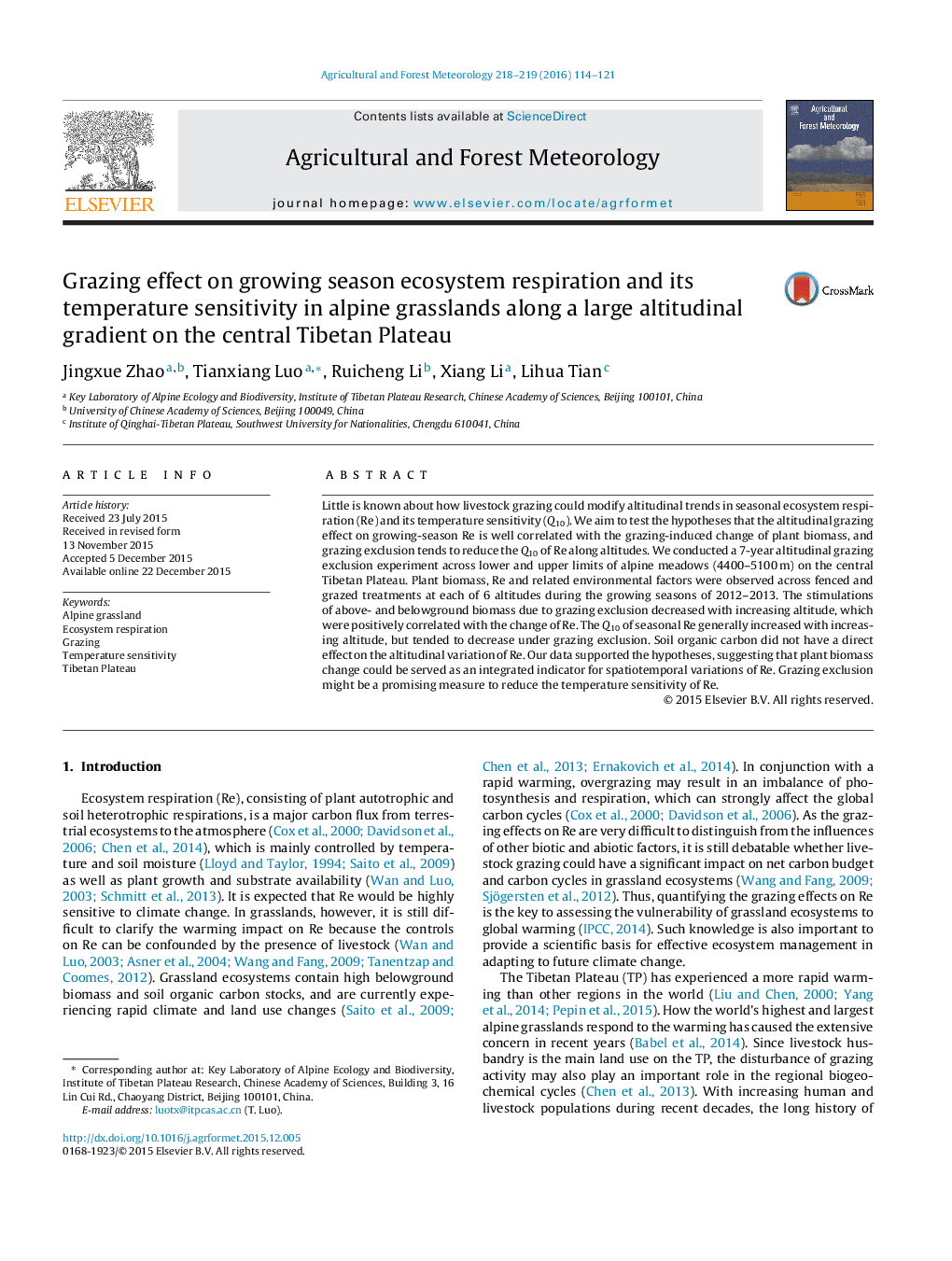| Article ID | Journal | Published Year | Pages | File Type |
|---|---|---|---|---|
| 6537042 | Agricultural and Forest Meteorology | 2016 | 8 Pages |
Abstract
Little is known about how livestock grazing could modify altitudinal trends in seasonal ecosystem respiration (Re) and its temperature sensitivity (Q10). We aim to test the hypotheses that the altitudinal grazing effect on growing-season Re is well correlated with the grazing-induced change of plant biomass, and grazing exclusion tends to reduce the Q10 of Re along altitudes. We conducted a 7-year altitudinal grazing exclusion experiment across lower and upper limits of alpine meadows (4400-5100Â m) on the central Tibetan Plateau. Plant biomass, Re and related environmental factors were observed across fenced and grazed treatments at each of 6 altitudes during the growing seasons of 2012-2013. The stimulations of above- and belowground biomass due to grazing exclusion decreased with increasing altitude, which were positively correlated with the change of Re. The Q10 of seasonal Re generally increased with increasing altitude, but tended to decrease under grazing exclusion. Soil organic carbon did not have a direct effect on the altitudinal variation of Re. Our data supported the hypotheses, suggesting that plant biomass change could be served as an integrated indicator for spatiotemporal variations of Re. Grazing exclusion might be a promising measure to reduce the temperature sensitivity of Re.
Related Topics
Physical Sciences and Engineering
Earth and Planetary Sciences
Atmospheric Science
Authors
Jingxue Zhao, Tianxiang Luo, Ruicheng Li, Xiang Li, Lihua Tian,
